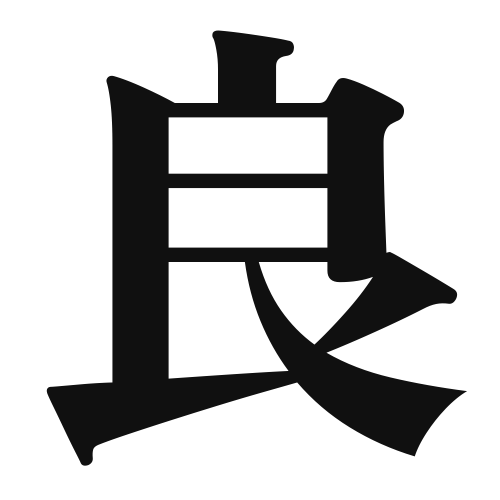1. Overview of Meaning
The kanji “良” (ryou) generally means “good,” “excellent,” or “fine.” It is often used to describe something that is of high quality or positive in nature.
2. Formation and Radical
Formation of the Kanji: The kanji “良” is classified as a phonetic-ideographic character (形声文字). It combines the meaning of “good” with a phonetic component that suggests its pronunciation.
Radical: The radical for “良” is “羊” (sheep), which is often associated with purity and goodness in Chinese culture.
3. Examples of Usage
Common Words and Phrases: Some frequently used words that include “良” are:
- 良い (よい, yoi) – good
- 良心 (りょうしん, ryoushin) – conscience
- 良好 (りょうこう, ryoukou) – favorable
Example Sentences in Daily Conversation:
- この料理はとても良いです。 (このりょうりはとてもよいです。) – This dish is very good.
- 彼は良い友達です。 (かれはよいともだちです。) – He is a good friend.
4. Synonyms and Antonyms
Similar Kanji: A similar kanji is “優” (yuu), which means “superior” or “gentle.” While both convey positive qualities, “優” often implies a sense of grace or excellence beyond just being “good.”
Opposite Kanji: The antonym of “良” is “悪” (あく, aku), which means “bad” or “evil.” This kanji represents negative qualities or undesirable characteristics.
5. Cultural and Historical Background
Relation to Japanese Culture: The concept of “良” is deeply embedded in Japanese culture, where quality and excellence are highly valued in various aspects of life, including food, craftsmanship, and relationships.
Proverbs and Idioms: One common saying is “良薬は口に苦し” (りょうやくはくちににがし), which translates to “Good medicine tastes bitter.” This proverb emphasizes that sometimes, what is good for us may not be pleasant.
